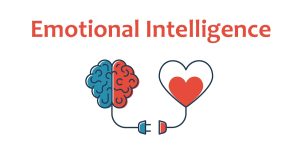What is Emotional Intelligence?
Emotional Intelligence refers to the ability to recognize, understand, and manage our emotions while also being aware of and influencing the emotions of others. It is a critical factor in workplace success, leadership, and personal relationships. People with high Emotional Intelligence can navigate social complexities, communicate effectively, and make sound decisions under pressure. Whether in the corporate environment or onboard a ship, developing Emotional Intelligence can lead to better relationships, improved decision-making, and greater resilience in challenging situations.
To develop Emotional Intelligence, one must focus on its four core components:
- Self-Management
- Self-Awareness
Example: A manager who is aware that they get impatient under pressure can actively work on staying patient when addressing their team during stressful periods.
- Social Awareness
Example: Onboard a vessel, where crew members come from diverse cultural backgrounds, social awareness helps in avoiding misinterpretations. For instance, an officer who understands that different cultures have varied communication styles will be more mindful and adaptable, ensuring smooth interactions among crew members.
- Relationship Management
Example: In a corporate environment, a department head facing conflicts between two employees uses active listening and mediation to address their concerns rather than allowing tensions to escalate.
By developing these four components of Emotional Intelligence, individuals—whether in an office or onboard a ship—can enhance their ability to manage emotions, communicate effectively, and foster a harmonious work environment.
People with Low EQ vs. High EQ
Understanding the difference between individuals with low and high Emotional Intelligence helps in identifying areas of improvement:
Characteristics of People with Low EQ:
- Often feel misunderstood.
- Get upset easily and struggle to control emotions.
- Become overwhelmed by stress and pressure.
- Have difficulty being assertive and managing conflicts.
- Understand the connection between emotions and behavior.
- Remain calm and composed in stressful situations.
- Influence and inspire others towards common goals.
- Handle difficult people with tact and diplomacy.

EQ vs. IQ: Understanding Their Importance
Both EQ and IQ play vital roles in personal and professional success, but they focus on different aspects:
IQ (Intelligence Quotient):
- Measures cognitive abilities such as logic, reasoning, and problem-solving.
- Essential for academic achievements and technical expertise.
- Evaluated through standardized tests.
- Measures emotional awareness, regulation, and social skills.
- Crucial for leadership, teamwork, and interpersonal relationships.
- Can be improved over time through self-awareness and practice.
Why is Emotional Intelligence Important?
Emotional Intelligence (EQ) brings numerous benefits that enhance both personal and professional life. It aids in stress management, helping individuals handle pressure and reduce workplace burnout. Improved communication leads to clearer conversations and stronger relationships. In conflict resolution, EQ encourages constructive problem-solving rather than emotional reactions. It also promotes better decision-making, ensuring more rational choices. Enhanced performance at work is another key benefit, fostering motivation and engagement. Lastly, EQ strengthens relationships, building trust and collaboration.
How to Improve Your Emotional Intelligence
Emotional Intelligence is a skill that can be developed. Effective strategies include journaling emotions to identify patterns, staying open-minded to different perspectives, and paying attention to your emotions to understand their root causes. Empathy is essential for building strong relationships, and self-assessment helps in evaluating strengths and areas for growth. Maintaining a positive mindset encourages resilience, while listening to feedback offers valuable insights. Active listening improves understanding, and channeling emotions productively ensures emotional composure in challenging situations.
The Role of Emotional Intelligence in Daily Life, Corporate Settings, and Onboard Ships
In Daily Life:
Emotional Intelligence helps in managing personal relationships, resolving conflicts, and maintaining mental well-being. It enables individuals to handle stress, practice patience, and make thoughtful decisions.
In Corporate Environments:
In the corporate sector, Emotional Intelligence is a key factor in leadership and teamwork. Employees with high EQ contribute to a positive work culture, communicate effectively, and handle workplace challenges with confidence. Leaders who exhibit high Emotional Intelligence can inspire teams, foster collaboration, and drive organizational success.
Onboard Ships for Seafarers:
For seafarers, Emotional Intelligence is crucial due to the unique challenges of working in a confined and high-pressure environment. Managing stress, maintaining harmony with crew members, and handling conflicts diplomatically are essential for a smooth sailing experience.
Given that ship crews consist of individuals from diverse cultural backgrounds, high EQ helps foster cultural sensitivity, enabling seafarers to navigate differences in communication styles, traditions, and social norms with respect and understanding.
Seafarers with strong Emotional Intelligence can effectively cope with isolation, build strong team dynamics, and ensure a safer and more productive work environment by promoting inclusivity and mutual respect.
Conclusion
Emotional Intelligence is a powerful skill that influences every aspect of life, from personal relationships to professional success. By improving self-awareness, social awareness, and relationship management, individuals can navigate challenges more effectively and foster positive interactions. Whether in a corporate office or aboard a ship, cultivating Emotional Intelligence leads to better decision-making, stronger relationships, and overall well-being. Investing in EQ development is not just a career advantage but a pathway to a more fulfilling and balanced life




